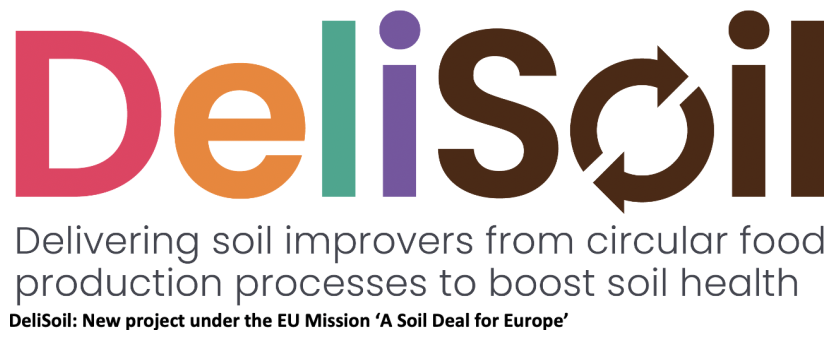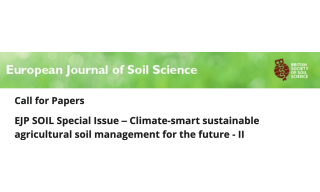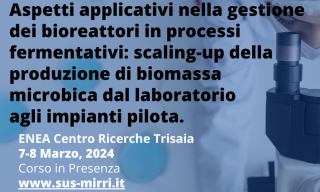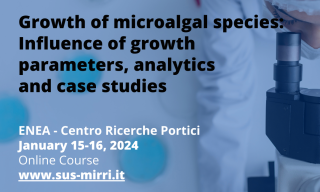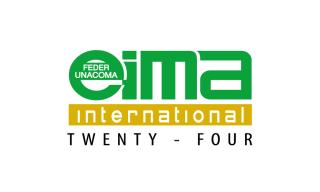DeliSoil Delivering soil improvers from circular food production processes to boost soil health
Through the strengthened cooperation of a diverse EU-wide consortium, a new project has been launched to develop solutions for the processing of nutrient-rich side streams from the food industry and prevent environmental risks.
Through the strengthened cooperation of a diverse EU-wide consortium, a new project has been launched to develop solutions for the processing of nutrient-rich side streams from the food industry and prevent environmental risks. DeliSoil (Delivering safe, sustainable, tailored & societally accepted soil improvers from circular food production processes for boosting soil health) will advance the EU Fertiliser Regulation's goal of bringing safe and high-quality recycled fertiliser products to the market, while promoting the EU Farm to Fork strategy on sustainable farming.
Five regional Living Labs will be set up (Finland, Denmark, Germany, Spain and Italy), with stakeholders from across the food value chain. The focus is on mitigating waste from food processing and valorising resulting by-products, while offering landowners products to be tested on their own farms. Innovative solutions will be shared using side-streams from vegetable, meat, insect cultivation, olive oil, wine and food industries. DeliSoil will be working together with other EU projects, and the European Soil Observatory (EUSO) to ensure a co-ordinated approach to the implementation of the Mission Soil goals.
The four-year project kicked off on 1 June 2023 with €7 million in funding from the Horizon Europe Work Programme. Led by Natural Resources Institute Finland (Luke), DeliSoil brings together 14 partners from research, industry and government sectors in 10 European countries. Reflecting on the impact of the project, DeliSoil project co-ordinator Ansa Palojärvi, Senior Scientist at Luke, said:
“Up to 20% of food available in the EU becomes waste, of which big part is generated during food processing and manufacturing. This food waste has a high potential for recovery. DeliSoil is embracing the opportunity offered by the circular bioeconomy to use food waste from the food industry to develop organic fertilisers that can replace mineral fertilisers and improve soil health in Europe.”
Other challenges addressed by DeliSoil include the production of environmentally sound and safe applications from waste streams, and ensuring the public are aware of their benefits. The project will facilitate knowledge exchange, improve interdisciplinary design processes and increase societal soil literacy to meet these aims.
Please follow @DeliSoilEU on X and @DeliSoil-eu on LinkedIn for the latest updates. A new website is coming soon at www.delisoil.eu.
Notes for Editors
Funded by the European Union under the Horizon Europe Program, Grant Agreement No. 101112855 (DeliSoil). Views and opinions expressed are however those of the author(s) only and do not necessarily reflect those of the European Union or Research Executive Agency (REA). Neither the European Union nor the granting authority can be held responsible for them.
This work has also received funding from the Swiss State Secretariat for Education, Research and Innovation (SERI).
The four-year project is led by Natural Resources Institute Finland (Luke). ERINN Innovation's role is to maximise the impact of DeliSoil through dissemination, communication, knowledge sharing and exploitation of results, while enhancing cooperation with the EU Soil Mission and other projects.
The main goal of the Mission A Soil Deal for Europe is to establish 100 living labs and lighthouses to lead the transition towards healthy soils by 2030. Living labs are places to experiment on the ground. The project’s living labs will bring together researchers, farmers, industries, and citizens to co-create innovations for healthy soils.
Image caption: Consortium partners together at the kick-off meeting in Finland.
Contact Project Coordinator: Ansa Palojärvi (ansa.palojarvi@luke.fi) Project Communications: Laura Franco (laura.franco@erinn.eu) DeliSoil Partners: Natural Resources Institute Finland - Luke (Finland), Central University of Catalonia - UVic-UCC (Spain), Italian National Agency for New Technologies, Energy and Sustainable Economic Development - ENEA (Italy), Proman Management GmbH (Austria), Mineral and Energy Economy Research Institute of the Polish Academy of Sciences - MEERI (Poland), ERINN Innovation Ltd (Ireland), University of Copenhagen - UCPH (Denmark), University of Hohenheim - UHOH (Germany), University of Leon - ULE (Spain), Interuniversity National Consortium for Environmental Sciences - CINSA (Italy), Yara International ASA (Norway), Finnish Food Authority - RUOKAVIRASTO (Finland), Pyhäjärvi Institute - PYHAJARVI (Finland) and Research Institute of Organic Agriculture - FiBL (Switzerland)
| Attachment | Size |
|---|---|
| 408.07 KB |

